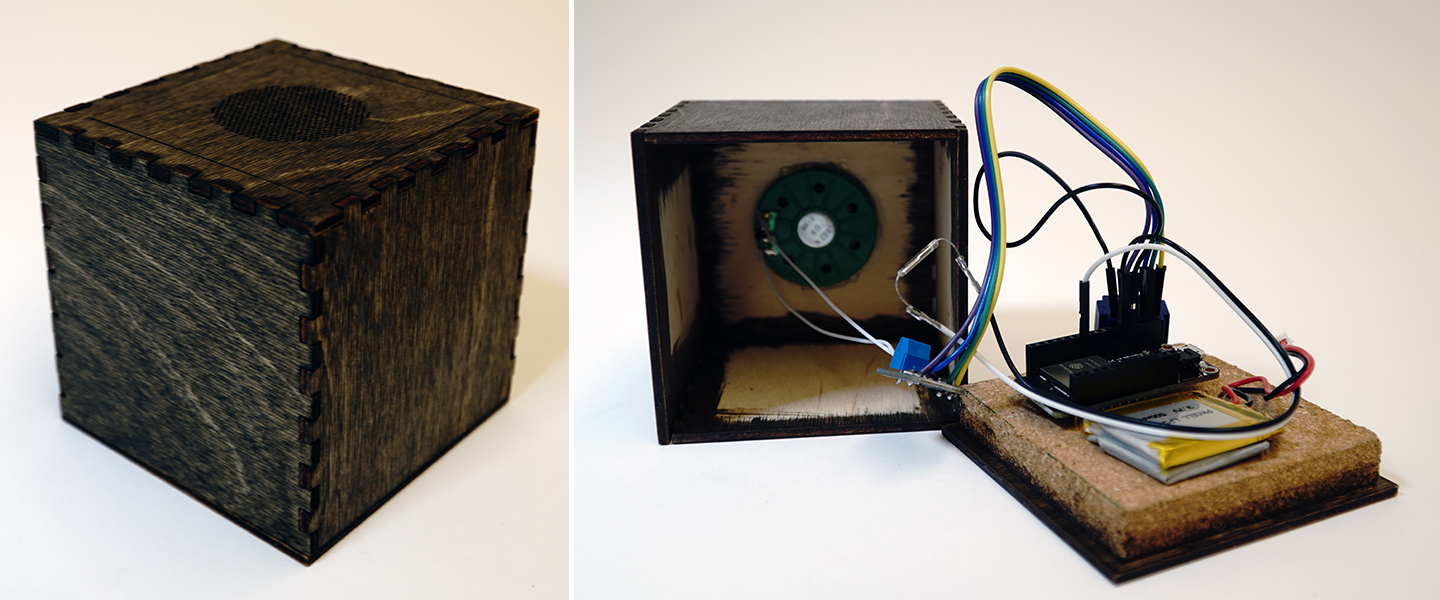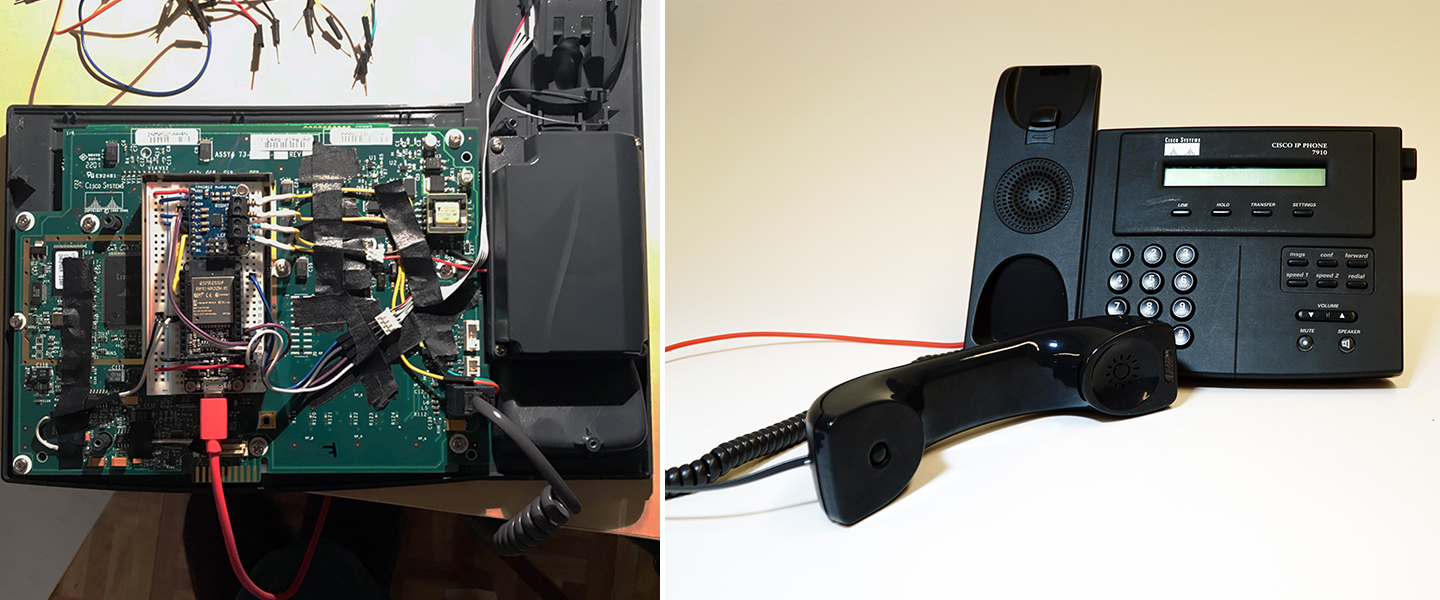#metoo Machines
2018With its reverberations through culture and politics, #metoo is one of the most significant uses of social media for social change. One can read the numbers: x million posts with the hashtag, y conferences hosted in the name of the movement, z people ousted from their jobs due to related allegations. But none of those really give a sense of the thing. What does an online movement feel like?
The #metoo Machines are an experiment to make the invisible visible. I wrote software for a small, wifi-connected chip that tracks uses of #metoo on Twitter in real time. I embedded that chip in a few innocuous-looking devices that serve as unsettling reminders of the frequency of sexual harassment.
Gift
The first machine is housed in a minimal wooden box. Whenever anyone tweets with the hashtag, a concealed speaker alternates between a tick and a tock. The result is a near-constant metronome-like drone. There is no obvious way to turn off the machine; one must either disassemble it or wait for the battery to run down.

Phone
For the second machine, I purchased a used office phone from eBay for $5. I methodically traced its circuits so that I could control its ringer and play my own audio over the headset. Every #metoo tweet makes the phone ring.
I recorded several very brief narratives about harassment experiences, and the phone plays back one of those at random when you pick up the headset. You might hear, for instance, “Hello. Yah, me too. His name was Phil, and I thought he was my friend. Bye.”

Impact
The #metoo Machines are intended to force listeners to reflect on their own lives. Given the sheer frequency of tweets, how many people do you know who have been affected by sexual violence? Might you yourself be one of those people? Or, uncomfortably, might you have been the cause of a tweet?